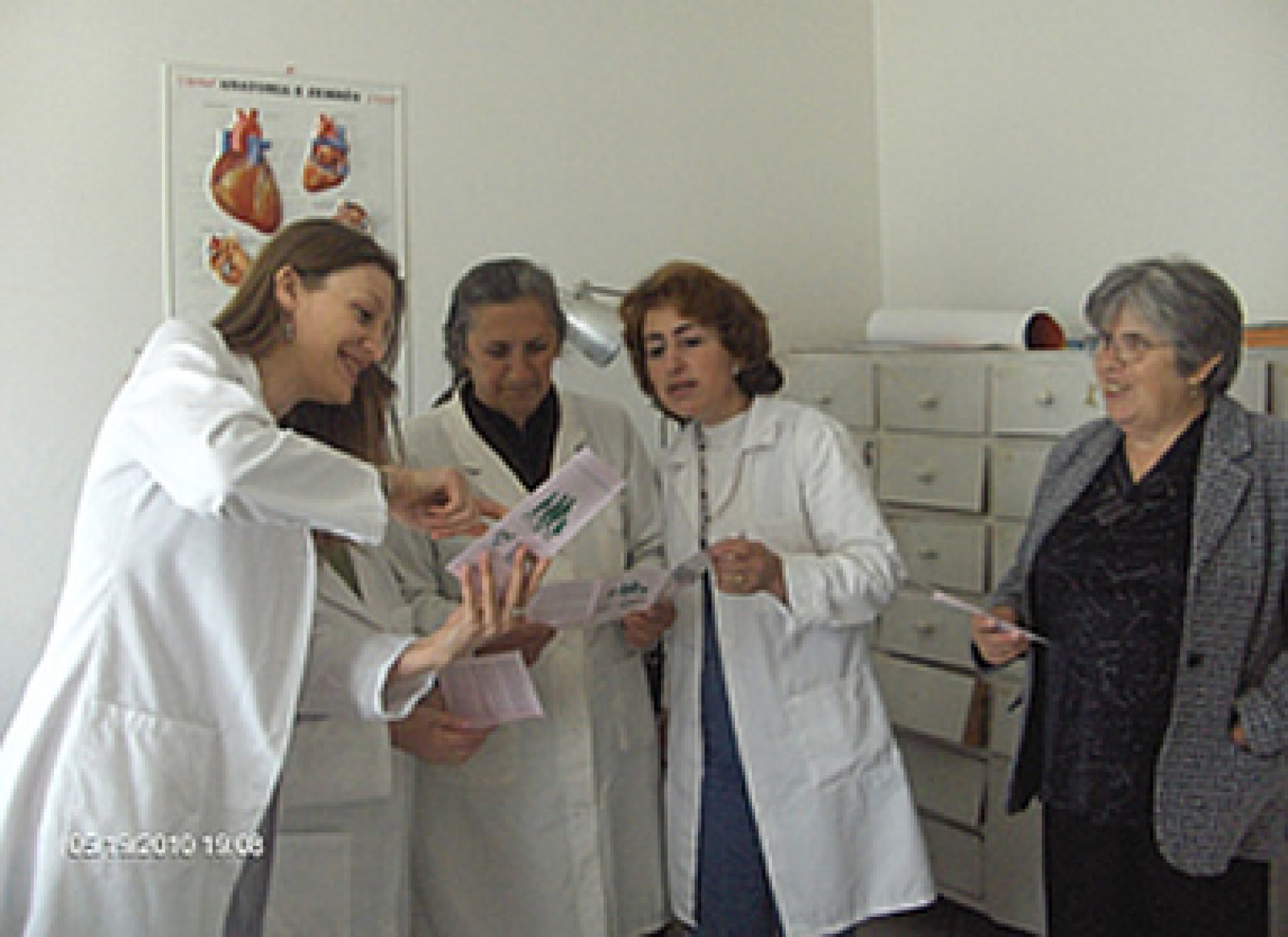
SHARE
A multipartisan network of politically active women is working to improve the lives of women in Albania by advocating on their behalf and making the political process more inclusive.
Albania has one of the lowest levels of women's representation in Europe, and the initial challenge of gaining access to government officials, even at the local level, often dissuades women from trying to impact public policy. In the face of this challenge, NDI's civil society partner, the Women's Network for Equality in Decision Making, spent the summer undertaking an advocacy initiative to improve health care for women.
Through research and door-to-door surveys, the women's network determined that Albanian women lack information about detecting and preventing breast and cervical cancers. In addition, many local health offices lack the appropriate resources for addressing these diseases, which requires women to travel long distances to the capital and even to neighboring countries to seek screenings and treatment. To address these problems, the women's network launched the campaign "Healthy Women, Healthy Society" to educate both women and decision-makers about women's health issues and advocate for increased funding for medical equipment and treatment.
NDI provided grants of less than $1,000 each to eight regional network branches, which the network used to reach out to health care providers, access print and broadcast media to educate women about breast and cervical cancers, and hold roundtable discussions with women, local doctors and government officials throughout the country.
For example, in Berat, a region in south central Albania, the network organized three roundtable discussions for local women, broadcast a debate among doctors on a local television channel and met with the region's top official and leading public health officials. In the northeastern region of Peshkopia, the women organized a symbolic walk through the main street of town and displayed photos from their project in health centers across the region to continue raising awareness after the conclusion of the project.
Together, the women directly educated approximately 700 women about the risks of breast and cervical cancers and how to prevent them, and they reached about another 4,000 women through distributing informational brochures.
Additionally, the network lobbied local and regional officials for resources for women's health care. Network members met with the top officials of their respective districts and contacted their members of parliament to gain support. Though the campaigns were organized and implemented by the regional branches of the network, the women leveraged the organization's national presence to raise a united voice and address national leaders, including the speaker of parliament.
Through these efforts, in Pogradec, a city in southeastern Albania, the women's network secured a commitment from the director of the regional hospital and the city's deputy mayor to provide free Pap tests for local women.
Fifty women, all graduates of NDI's political skills-building series, founded the network in 2008 as a nonprofit, nongovernmental organization (NGO). NDI, with funding from the National Endowment for Democracy, has supported these women as they strengthen and develop their NGO to become a leading proponent for women's representation in politics.
Related:
- Albanian President Topi tells women leaders to make their voices heard to strengthen nation's democracy»
- National Platform for Women launched in lead up to Iraqi elections»
- HIV/AIDS program helps democracy deliver in Southern Africa»
Pictured above: In Dibra, a member of the women's network provides nurses with informational pamphlets that they can use to educate women about how to detect breast and cervical cancers.
Published on November 10, 2010


